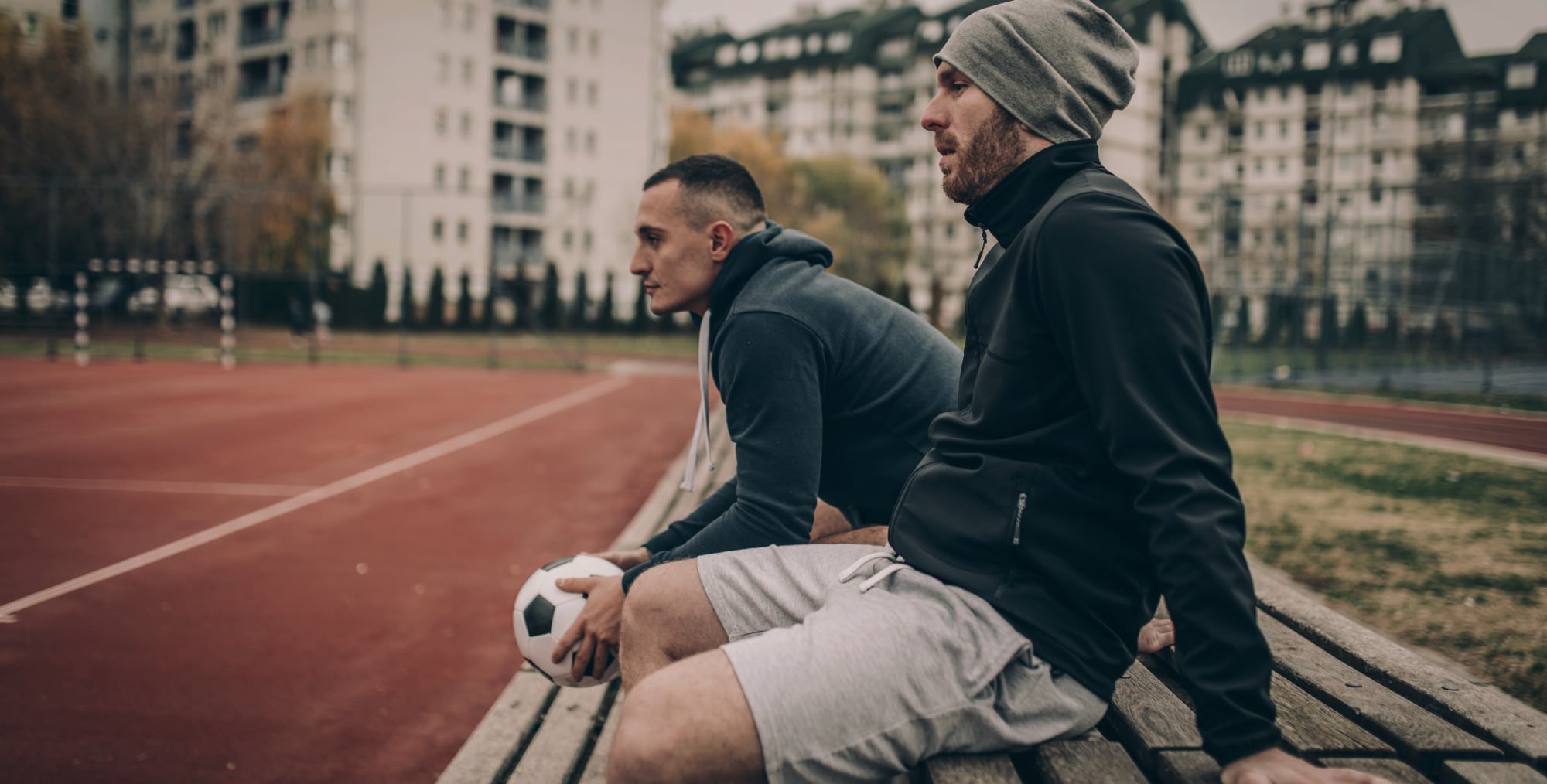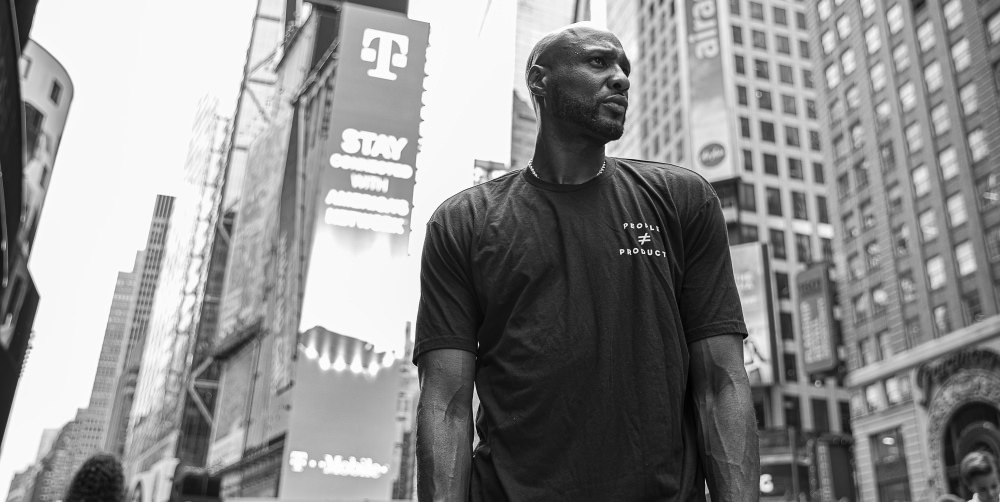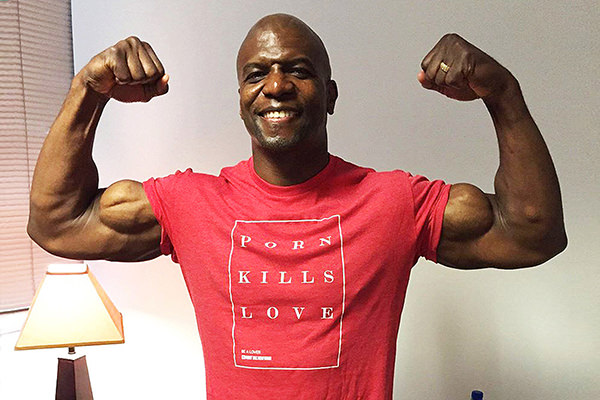The conversation about porn is growing like crazy, with more people discussing how it might just be the 21st century’s worst dark side.
The relationship porn consumption has with athletic performance, though, needs a lot more talk than its getting. We want to draw attention to some studies and some stories to convince any aspiring athlete that ditching XXX entertainment is seriously worth considering.
Just body, or mind too?
Research is pretty consistent on the mental component to athletic success.
One study analyzed college female volleyball players during practice—experts, non-experts, and novices. Researchers studied these athletes’ ability to self-regulate with 12 measures, including “[goal-setting], planning, strategy use, self-monitoring, self-evaluation, attributions, and adaptation.” The result? Expert players showed higher self-regulatory processing. They even displayed higher levels of interest in playing, self-satisfaction, and belief in their capabilities.
Another study had similar findings with basketball players. Expert players showed increased planning, strategy, reflection, and self-satisfaction than non-experts and novices.
Related: “I’m Trying To Be Better”: Why Pro Athlete Lamar Odom Says He’s Done Watching Porn
All of these qualities that distinguished expert players from the rest fall under the umbrella of self-regulation. This matters because you aren’t just born with talent or no talent, good self-regulation or bad self-regulation. Your brain’s ability to self-regulate is affected by choices you make.
Let’s get into a bit of science here. Hang with us—this is important.
The brain’s role in sports
Self-regulatory functioning is housed in the frontal regions of the brain—namely the Prefrontal Cortex (PFC). The PFC acts as a manager of higher level mental skills such as impulse control, decision making, attentiveness and reasoning. In essence, this crucial section of the brain right behind the forehead is fundamental to your ability to control, direct, and manage yourself in your daily life. On top of that, the PFC also contributes to your sense of self and purpose, your understanding of how you relate to the world around you.
So really, we could call the PFC your most valuable physical asset. Its health impacts everything—including sports.
Related: Solar Eclipse, Missile Scare, Super Bowl: How These Events Majorly Disrupted Porn Site Traffic
As the studies above—and this one, and yet another one, show—the sharpness of an athlete’s self-regulation is highly correlated with his or her performance. The better the self-regulation—so, the healthier the PFC—the more likely someone is to perform on an elite level compared to others. Got it?
Here are a few athletes you might recognize, talking about the importance of the mental aspect of their game:
To take it one step further, there is recent research suggesting that dopamine, the brain’s reward and pleasure chemical, is linked to athletic performance. Studies show that more elite athletes had significantly stronger dopamine neurotransmitters, helping them to control their emotions and manage their psychological reactions. Another piece to this mental puzzle of athletic success. The brain seems just as critical as the body, doesn’t it?
This is where porn can start to mess things up.
What porn can do to the athlete’s brain
So if athletic performance depends on the proper working of the brain, then athletes should take care of their brains, right? Turns out that watching porn does the opposite. Yet again, take the scientists’ word for it.
In this ground-breaking study in Berlin, neuroscientists Simone Kühn and Jurgen Gallinat found that sections of the brain involved in motivation and reward (remember self-regulation and dopamine?) are smaller in people who watch more porn. Critical parts of the reward circuitry, that mental system that distinguishes elite athletes from the masses, literally contain less gray matter in porn consumers. Here’s a video interview from Truth About Porn whereKühn discusses their findings:
Dr. Kühn was shocked by these results. She explains in the video that “the more porn people watch, the less well the reward region is connected to the prefrontal cortex. Their PFC was less well able to control activity in the reward region.”
The porn consumer group compared to the control group had fewer brain cells in the part of the brain that manages the reward system and dopamine flow, and that section was less well connected to the PFC. Basically, the brain section that makes someone feel good when they score points, make a play, or train well, and therefore pushes them to continue those behaviors, is smaller. Plus, that section isn’t properly communicating with the self-regulation center that helps an athlete determine how and when to direct skill, energy, movement, and decision.
So while there is always a conversation of causation vs. correlation, we have enough science to make us confident of some things.
And if you’re skeptical of this data, check out the other studies that have replicated these findings.
Consuming porn can trigger so much dopamine release in the reward circuitry that the brain becomes desensitized to it. So that fine-tuned awareness of an amazing athlete—training your body with just the right exercises to help you make the tackles or balance weightlessly in a pirouette—can become fried at worst, and harmed at best.
Related: 5 Male Ex-Porn Performers Share Their Brutal Experiences Doing Porn
The addictive nature of porn hijacks the brain’s reward networks, so that it more readily eases into a state of “flow” while watching porn and begins to crave that erotica-induced flow above other types—like, let’s say, getting “in the zone” to train for your sport. If your brain has to choose between rewarding the effortless “flow” of immediate porn or the “flow” that comes from long hours of hard training and sacrifice in the gym and on the field, where do you think it’s going to send its dopamine?
Porn, like a hard drug, takes control of the brain’s reward system so that it does not properly reward the consumer for eating healthy food or training well. Cue lack of motivation.
Basically, if you train, practice, and push yourself athletically, you’re backtracking on that hard work and progress by watching porn. It’s like running 5 miles and then eating a whole tub of ice cream. Kind of defeats the point, doesn’t it?
Science, conversations, and celebs that are bringing hope
Yes, the damage is real. But there are sources of hope and inspiration for all of us with big dreams in the sports world.
In fact, one of the things discovered by researchers to reverse the damaging effects of porn on the brain is super relevant to the athlete—exercise. Moving the body encourages neurogenesis, the creation of new brain cells. Brain regions that were shrunk or damaged by porn become flooded with fresh oxygen and get a chance to grow and rewire in a healthy way—if they are cut off from the over-stimulating porn and allowed to reconnect to positive, everyday habits like exercise and friendship.
If you peruse the internet, you find people discovering this “porn vs. sports” concept proving true in their own lives. If fancy research doesn’t convince you, maybe these social frontrunners with raw personal experiences will.
Related: Kansas City Royals Becomes First MLB Team To Take A Stand Against Sexual Exploitation
Check out these Reddit commenters flocking to tell how giving up porn made their training and performance skyrocket. Same with these guys.
Or this man’s introspective journey through athletic injury and healing, intuiting porn’s destructive role in his inner life.
And these big names are bold enough to share their stories and fight porn publicly:
NBA champion and pro athlete Lamar Odom has given up porn as part of building a healthier lifestyle for himself as he trains to get back on the court.
Nick Willis, the Olympic runner from New Zealand, has been vocal about porn’s long and toxic grip on his life and the priceless freedom he gained by breaking free.
Former NFL player and body-training icon Terry Crews was also secretly addicted to porn but now proclaims how he almost lost everything until he quit porn altogether. He now proudly reps our “Porn Kills Love” tee.
The MLB team, the Kansas City Royals, is partnered with Fight the New Drug, recognizing porn’s harms as a community and dedicating themselves to education, awareness, and action on a global scale. These guys are incredible—we are so honored to be working with them to support a vibrant athletic world for everyone.
Now, it’s your turn
For many people—some who have already reached the top, and other young dreamers living on vision and hard work—succeeding athletically is part of what makes up a passionate, full life. If this is you, this incredible ambition depends on you feeding what propels you forward and starving what holds you back. Time after time, science and experience show how porn holds people back—a temporary thrill for long-term risk.
Is porn worth it? Because of the science and research, we say no.
You are capable and worthy of real pursuits, real effort, real success. Leave the mental junk food behind and go after your dreams.

Your Support Matters Now More Than Ever
Most kids today are exposed to porn by the age of 12. By the time they’re teenagers, 75% of boys and 70% of girls have already viewed itRobb, M.B., & Mann, S. (2023). Teens and pornography. San Francisco, CA: Common Sense.Copy —often before they’ve had a single healthy conversation about it.
Even more concerning: over half of boys and nearly 40% of girls believe porn is a realistic depiction of sexMartellozzo, E., Monaghan, A., Adler, J. R., Davidson, J., Leyva, R., & Horvath, M. A. H. (2016). “I wasn’t sure it was normal to watch it”: A quantitative and qualitative examination of the impact of online pornography on the values, attitudes, beliefs and behaviours of children and young people. Middlesex University, NSPCC, & Office of the Children’s Commissioner.Copy . And among teens who have seen porn, more than 79% of teens use it to learn how to have sexRobb, M.B., & Mann, S. (2023). Teens and pornography. San Francisco, CA: Common Sense.Copy . That means millions of young people are getting sex ed from violent, degrading content, which becomes their baseline understanding of intimacy. Out of the most popular porn, 33%-88% of videos contain physical aggression and nonconsensual violence-related themesFritz, N., Malic, V., Paul, B., & Zhou, Y. (2020). A descriptive analysis of the types, targets, and relative frequency of aggression in mainstream pornography. Archives of Sexual Behavior, 49(8), 3041-3053. doi:10.1007/s10508-020-01773-0Copy Bridges et al., 2010, “Aggression and Sexual Behavior in Best-Selling Pornography Videos: A Content Analysis,” Violence Against Women.Copy .
From increasing rates of loneliness, depression, and self-doubt, to distorted views of sex, reduced relationship satisfaction, and riskier sexual behavior among teens, porn is impacting individuals, relationships, and society worldwideFight the New Drug. (2024, May). Get the Facts (Series of web articles). Fight the New Drug.Copy .
This is why Fight the New Drug exists—but we can’t do it without you.
Your donation directly fuels the creation of new educational resources, including our awareness-raising videos, podcasts, research-driven articles, engaging school presentations, and digital tools that reach youth where they are: online and in school. It equips individuals, parents, educators, and youth with trustworthy resources to start the conversation.
Will you join us? We’re grateful for whatever you can give—but a recurring donation makes the biggest difference. Every dollar directly supports our vital work, and every individual we reach decreases sexual exploitation. Let’s fight for real love:







